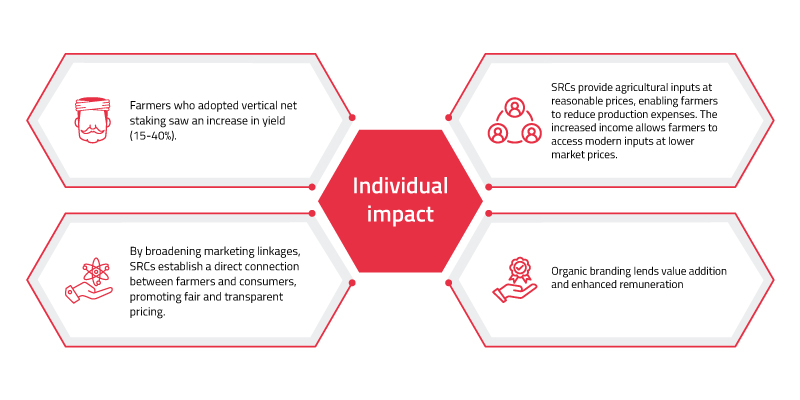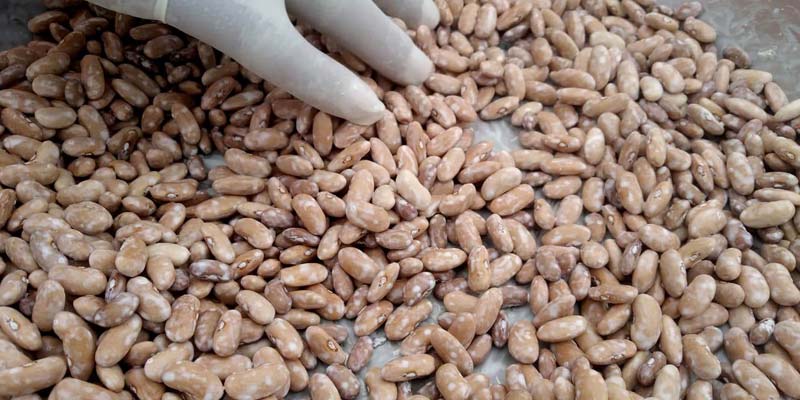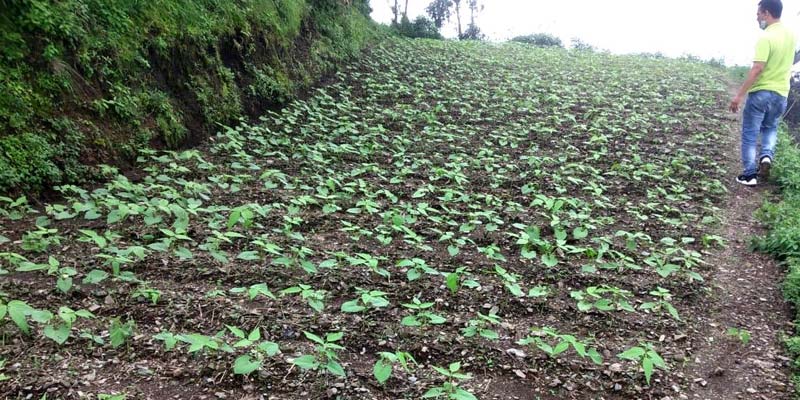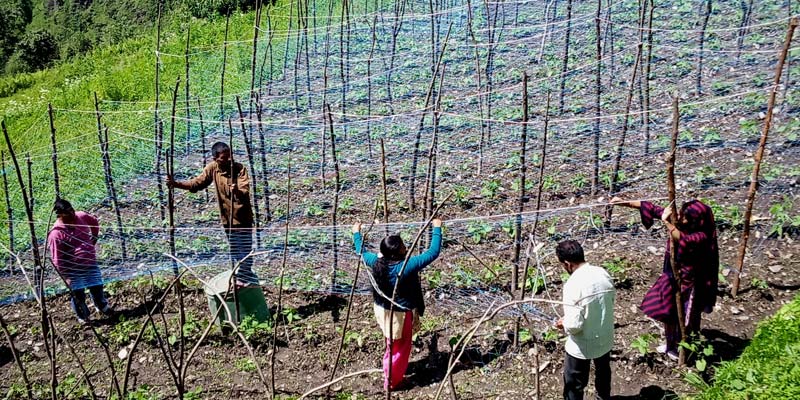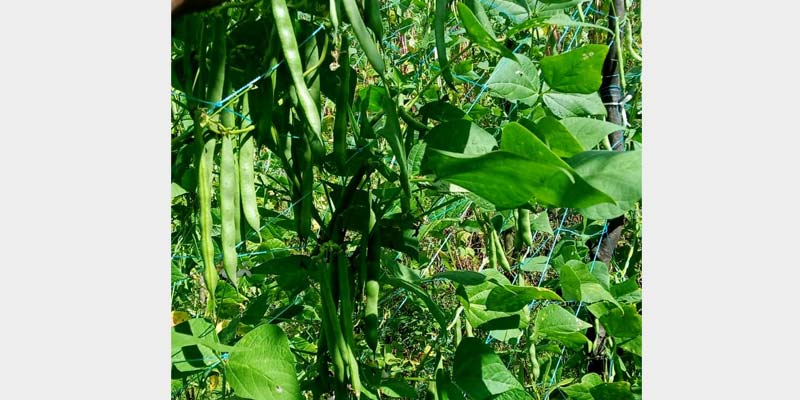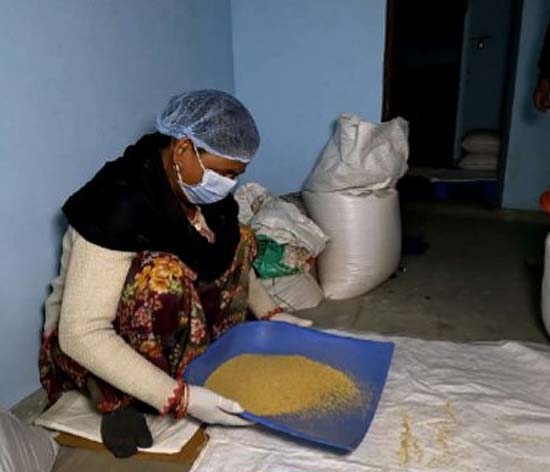
Fifty-year-old Dan Singh lives in Farsali Valli village, Kapkot block, Uttarakhand. With limited resources and little knowledge of modern methods of cultivation, his agricultural output is limited to domestic consumption. Dan Singh’s story is not unique; farmers in these areas have very little knowledge of locally grown seed varieties and use broadcasting methods without prior treatment of seeds. This results in poor germination rates and higher incidences of seed-borne diseases.
Ground reality
Moreover, Uttarakhand, situated in the heart of the Central Himalayas, is predominantly hilly. The mountain landscape is physiologically different from that of the plains or tablelands; agriculture here faces some unique challenges: fragmented land, unavailability of quality seeds suited to the terrain, lack of irrigation infrastructure and over-dependence on the monsoons, low productivity, underdeveloped marketing channels and low price realisation. The vagaries of weather patterns like erratic rainfall patterns, decreasing snow caps, extreme climate variability, etc., pose a constant threat of crop failure. These problems had to be comprehensively addressed to resolve the situation.
Himmotthan Society, the associate organisation of the Tata Trusts conducted a needs assessment and feasibility study to confirm the issues plaguing Uttarakhand’s villages. The Trusts’ Project Mission Pulses was initiated in February 2018 to develop and/or source high-quality seeds, specifically adapted to the region’s unique environmental conditions; enhance crop productivity; and reduce drudgery with hill-based machinery, post-harvest processes, branding and institutional marketing. The project, which ended in September 2023, encompassed 12 blocks and clusters across nine mountain districts: Pithoragarh, Pauri Garhwal, Tehri Garhwal, Chamoli, Nainital, Bageshwar, Uttarkashi, Dehradun, and Almora.
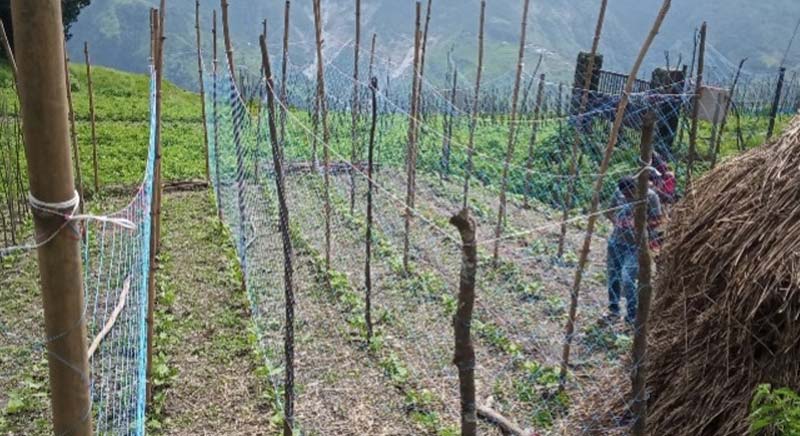
Integrated approach
The Mission Pulses project integrated with cluster cooperatives formed under existing Trusts’ initiatives, adopting and linking cluster approaches to government programmes and schemes for long-term viability. Seed production, promotion of high-value crops, beekeeping, orchard establishment, creating irrigation infrastructure, popularising mechanisation, strengthening community institutions, establishing Community Facility Centres (CFC) and marketing outlets, layering livestock-based interventions in certain clusters, post-harvest processing, packaging, branding and marketing of agri-produce – were all integrated under the Mission Pulses project. The programme also formed 12 Women Farmers’ Cooperatives under the livelihood promotion programme, covering 25,037 households in 500 villages. This provided an institutional base that ensured long-term sustainability of the change brought in by the intervention.
Mission Pulses focused on pulses like rajma, horse gram, soya beans and pigeon peas. The programme has also promoted millets, off-season vegetables, herbs, spices, etc as rotational crops to get maximum return from per unit area throughout the year The programme began in the uphill rainfed areas of Munsyari block, famous for the Munsyari Rajma, a variety unique for its taste, quality and nutrient value. Starting with 362 farmers and eight hectares in 2018-19, the coverage increased to 29 hectares and 1,170 farmers in Munsyari alone in 2021-22. Recognising the need for transformation, Dan Singh was a keen participant in the programme.
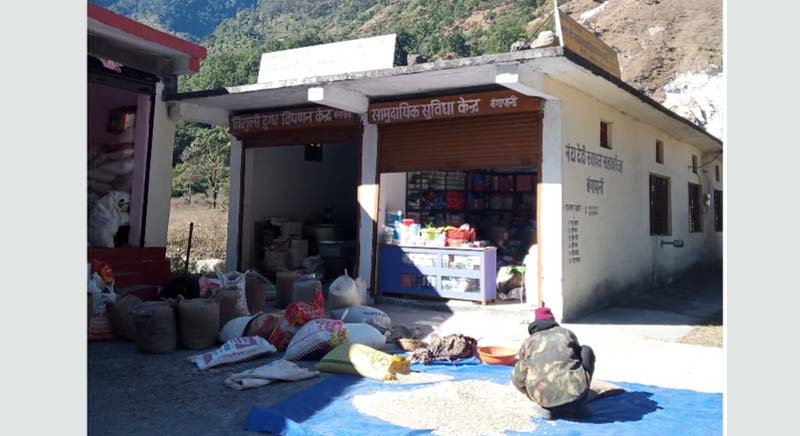
Quantifiable results
The results showed that the total savings for farmers worked out to approximately Rs45,521 per hectare. This included savings from reduced seed rates, reduced cost of support systems for the vines through vertical nets, and reduced labour costs. Rajma production increased from 133 quintals in 2018-19 to 671 quintals in 2021-22.
Yields increased from 40kg/nali in the traditional system to 60kg/nali in the new vertical net cultivation system, thereby increasing farmers’ incomes. Like Dan Singh, FGD Dolma, a resident of Munsyari, was also an enthusiastic participant. “Previously, we obtained a yield of 30-35kg of rajma per nali. With improved seeds, adopting line sowing and utilising vertical nets, our yield has doubled.” Selling their crops through an SRC (Self-reliant cooperative centre) has also doubled their returns: “Initially, we sold rajma in local markets for Rs80-90 per kg. Now, by cultivating and selling organic rajma through the SRC Nanda Devi Federation, we obtain Rs180-200 per kg,” says Dolma.
Himmotthan popularised the crop in three other clusters: Dugadda, Kotabagh and Kapkot. The transfer of improved production technology covered 6,617 farmers across 1,025 hectares in these three clusters and Munsyari. Critical irrigation support was provided to 114 acres. Government-subsidised bio-composting with 107 composting structures and three master composting units was established in several clusters. 2,500 farmers were enrolled in an organic production and certification programme.
During the project lifespan, pulse production increased from 800kg/ha to 1,600kg/ha. Losses have been reduced by 20% due to improved post-harvest processes and effective marketing. Nearly 75% of the farmers are selling their produce collectively through SRCs and ultimately to Trishulii Producer Company Limited (TPCL) – a producer company promoted by Himmotthan under Trusts initiative. CFCs provide a one-stop destination for all farmers’ needs from seeds to fertilisers and irrigation pipes, etc.
The way forward
To preserve biodiversity, enhance farmers’ productivity and nutritional security, and reduce their vulnerability to climate change, it is important to promote traditional crops and enable support for producer-managed seed systems in collaboration with government/private institutions and scientists.
Developing subsidiary businesses such as agro-processing units, grading and sorting machinery for pulses and other hill specific agri-commodities, and supply of agricultural inputs can contribute to additional revenue for SRCs at the community level.
SRCs conduct training and workshops regularly to ensure farmers’ competency. Skilled members will contribute to the continued sustainability of the SRC. With time, SRCs can upgrade their units with innovative technologies, thus becoming economically viable.
The Trusts’ interventions not only empower communities but are the key to a sustainable, self-reliant future.
